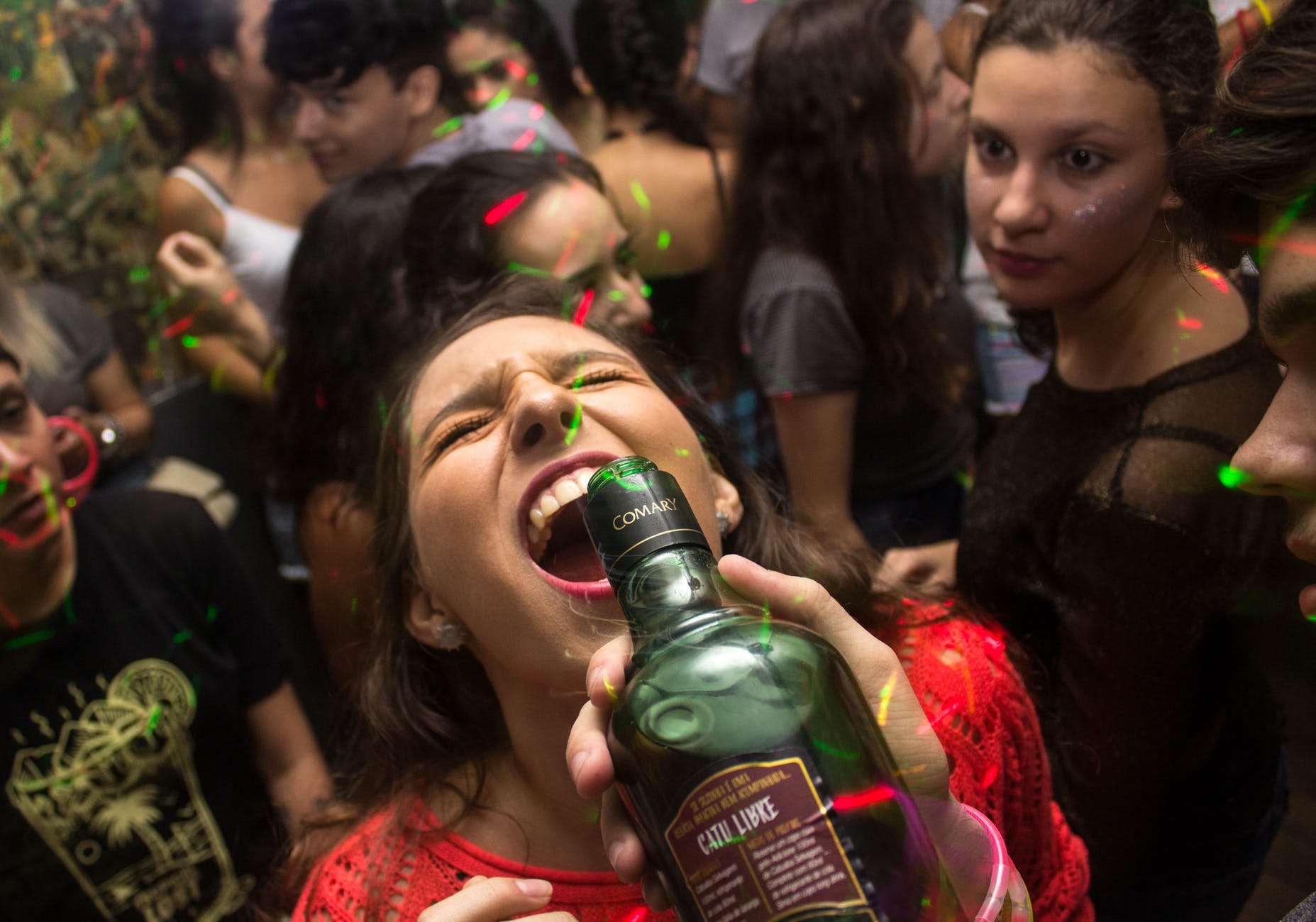
Approximately 53.6% of college students will drink alcohol this month. While many can drink responsibly and legally, underage drinking in college is associated with a range of harmful effects. Problem drinking, or alcohol abuse, can lead to increased incidences of sexual assault, violence, and alcohol poisoning. Among college-age students, alcohol accounts for more than 1,500 deaths per year, and 97,000 cases of date rape and sexual assault. Recognizing the early signs of alcohol abuse and addiction can prevent the dire consequences of alcohol abuse and get a young person the help they need.
College Students and Alcohol Abuse: Binge Drinking
Binge drinking is frequent among college students who abuse alcohol. Binge drinking doesn’t always indicate that someone is addicted to alcohol, but it does increase the risk of alcohol addiction later in life. Binge drinking occurs when someone consumes a large amount of alcohol in a short period. For men, that is five or more drinks in two hours, and for women, four or more drinks in the same timeframe — 37.9 % of college students between the ages of 18 and 22 binge drink in a given month.
The first six weeks of freshman year, when college students are typically 18 or 19 years old and underage for alcohol consumption are the riskiest times for them. These young students are often exposed to alcohol from older college students and may feel pressured into drinking. Alcohol use is often considered part of the “college experience.” In other cases, college students may feel stressed and anxious about being away from home and in an unfamiliar environment. They may start drinking to alleviate painful feelings. As a result, they are at risk of drinking far more than they can handle and putting themselves at risk of injury, assault, legal problems, and alcohol overdose.
There are specific trends in college-age drinking statistics that parents should also understand to keep their son or daughter safe. Until recently, most college students who abused alcohol did so because of peer pressure or the desire to socialize. This is changing. Instead, more and more young people are binge drinking alcohol for the sole purpose of getting drunk. This is an incredibly dangerous practice, leading to increased incidences of blackouts and the risk of alcohol poisoning.
What are the consequences of heavy drinking while in college?
Problem drinking at college can lead to a range of consequences. Drinking alcohol can impair judgment and lead to increased risk of injuries and accidents. Also, alcohol abuse is related to poor performance in school and can jeopardize a college student’s academic progress. Getting into trouble with the legal system is also a risk when someone drinks at college.
Alcohol significantly impairs a person’s decision-making processes. Someone under the influence of alcohol will make choices that they otherwise wouldn’t when sober. Extremely drunk college students may drive while under the influence, commit property crimes, or other acts of vandalism. Unfortunately, many alcohol-related offenses can put others in danger. These crimes committed while drunk, no matter how small, carry hefty fines, legal fees, and possible jail time or a suspended driver’s license. In some cases, being charged with an alcohol-related crime as an underage college student can jeopardize a student’s ability to get their degree.
Heavy drinking can also impact a college student’s health. An estimated 150,000 college students develop an alcohol-related health problem every year. Liver damage, high blood pressure, and pancreatic issues are typical in these cases. Fortunately, early intervention and treatment for alcohol abuse can reverse these health problems.
What are the signs of alcohol abuse and addiction in college students?
Abusing alcohol doesn’t necessarily mean that someone is addicted or has otherwise formed a dependence on alcohol. However, alcohol abuse and binge drinking put a college student at considerable risk of a range of issues. Also, alcohol abuse can lead someone down a path of addiction. Early intervention is key to preventing alcoholism and other dangers of alcohol abuse. Signs of alcohol abuse include:
Signs of alcohol dependence or alcohol addiction in college students:
What are the treatment options for alcohol addiction?
Addiction can be difficult to identify and challenging to treat, but it’s not impossible to recover from alcoholism and go on to live a healthy and alcohol-free life. If a college student is exhibiting the signs of alcohol dependence, it’s crucial for family and friends to speak to them about the issue. It’s also critical to look into the root causes of a person’s problem drinking. Many times, students turn to alcohol to cope with the stresses of college and being away from home. Therapy and support groups can help students with these hardships.
Alcohol dependence is a complex disorder, and treatment must be tailored to the individual. Usually, a combination of one-on-one therapy, support groups, and attending an outpatient rehab center can help a college student achieve and maintain sobriety. Many outpatient treatment programs will work around a college student’s schedule so they can continue attending school while getting help for problem drinking.
Are you concerned about a young person’s drinking habits? We can help. Contact us at Mission Harbor Behavioral Health today. Our experienced addiction counselors can answer your questions about intervention and alcohol treatment programs for college students.
The facilities at Mission Harbor are staffed with trained experts to best assist patients with their mental health issues. We are capable of dealing with any and all cases with a licensed staff, equipment, and approved techniques. Our mission is to help those who want to help themselves, and we support your decision in seeking help.
Get Help Now
Alcohol addiction is extremely difficult to overcome on your own.. Seek specialized help and let professionals guide you in your recovery.

